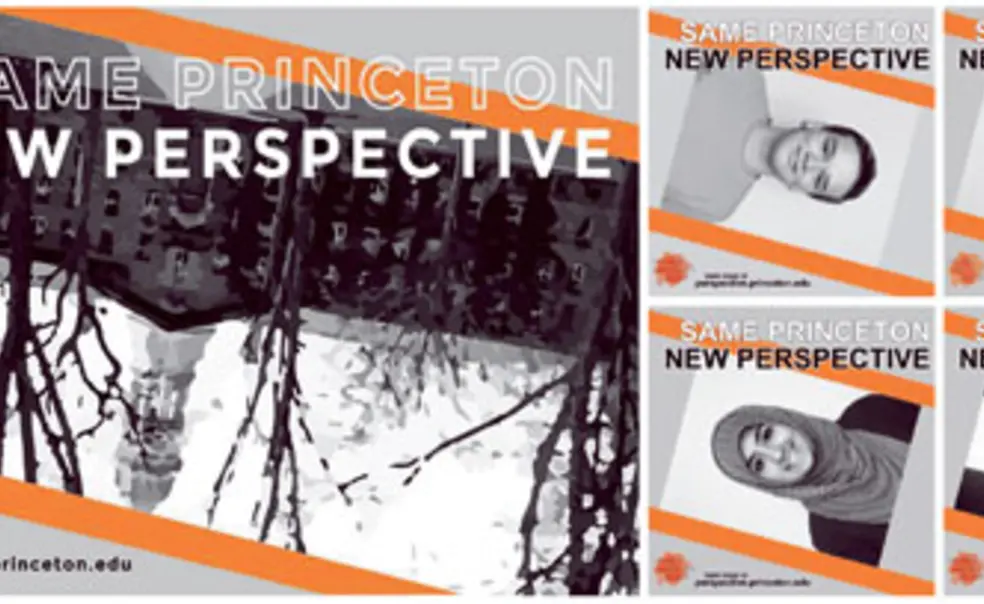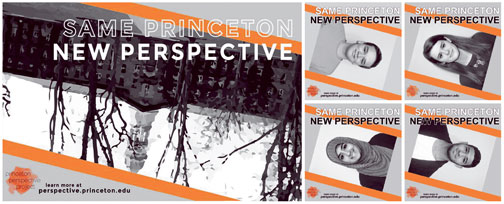Effortlessly Perfect?
The Princeton Perspective Project aims to normalize student struggles and failures
During his freshman year, Cason Crane ’17 found himself dealing with many new emotions, and not all of them were positive. He found it difficult to make friends, while all of his peers appeared to be socializing and meeting new people. He felt sad, lonely, and like he was the only one struggling.
“I would be in the study room doing work, and when I would finish my work and had the option to go out and join my friends, I just couldn’t get myself to move because I felt like I was the only one in my position and that everyone else was off having fun and I wasn’t a part of it,” Crane said.
In recent years, this idea of “effortless perfection” — pressure to do everything well (academics, extracurricular activities, and social life) without any setbacks along the way — has become part of the Princeton experience for many students.
A new initiative on campus, the Princeton Perspective Project (PPP), is working to normalize feelings of failure and struggle among students — feelings that, according to Undergraduate Student Government President Shawon Jackson ’15, are all too common.
“Effortless perfection affects everyone because everyone at Princeton wants to do really well and has high standards,” Jackson said. “You see people getting awarded at graduation ceremonies, or getting academic awards, and you start comparing their public successes with your private failures. And that comparison is really dangerous.”
The director of student life at Butler College, Alexis Andres, one of the administrators spearheading the project, researched the effects of effortless perfection for her Ph.D. at the University of Virginia and found that UVA students who spent a significant amount of energy concealing their emotions and effort were more likely to suffer from anxiety and depression than other students.
PPP co-sponsor and Associate Dean for Campus Life Tara Christie Kinsey ’97 said the goal of the project is to promote the idea that it’s normal and productive to feel lonely and experience setbacks as part of the learning process. She hopes it will result in a more “failure-friendly” campus, reversing the trend of recent years.
“The smaller the percentage of people admitted, the more unworthy people feel,” she said. “There’s the idea of ‘I’m one of the 7 percent [admitted], so I have to live up to that 7 percent.’ ”
On Nov. 3, the PPP launched its website, perspective.princeton.edu, which includes video testimonials from Princeton students reflecting on their experiences, links and information for students looking for help, and news about campus events and groups organized to frame failure as healthy and to help students realize they’re not alone in feeling inadequate.
More than than 140 students changed their Facebook profile pictures in November to a black-and-white tilted headshot photo inscribed with the project’s motto, “Same Princeton, New Perspective,” to raise awareness about the initiative.
In addition to a series of events in which students will have the opportunity to speak candidly about their struggles with effortless perfection, Jackson said the USG is planning a student-speaker summit for the spring, which will be similar to a TED Talk, as a way to keep the conversation going. Down the road, he hopes to include stories on the website from faculty, staff, and alumni about their dealings with failure and struggle.
“Princeton knocks you down before it builds you up,” Crane said. “But it’s all a universal part of the Princeton experience.”













2 Responses
Alan E. Mayers ’54
10 Years AgoPerfection and Failure
Roy Heath ’39 documented the “effortless perfection” phenomenon (On the Campus, Dec. 3) but did not give it this name in his study of 36 members of the Class of 1954, whom he followed intensively throughout their undergraduate years. The study was reported in his book The Reasonable Adventurer: A Study of the Development of Thirty-Six Undergraduates at Princeton (University of Pittsburgh Press, 1964). Roy developed a typology placing the participants on scales of temperament and ego-functioning, and called the ideal outcome of the undergraduate experience the “reasonable adventurer.” In comparison with a control group of non-participants, those in the study were markedly more successful both as undergraduates and in their subsequent careers, which was evidence of what is known as a “Hawthorne effect” in social experiments.
He explored this effect when interviewing the participants and members of the control group just before their 25th reunion and reported his findings to the class in “Princeton Retrospectives: Twenty-Fifth-Year Reflections on a College Education.”
Many of them commented on the value of having a sympathetic listener as they struggled with the process of finding their identity and discovering that they were not alone in their struggles. As he wrote in a letter to me, “One of the opportunities Princeton offers is the challenge and the chance to fail. It is truly a shakedown experience for many. Not only does it reveal false and workable personae, but also other talents and resources that were hitherto undeveloped. ... All this points up the importance of not always playing safe with one’s options.”
Roy was beloved by many more than the participants in the study, and the Class of 1954 dedicated its Nassau Herald to him. Roy died in 1991. He would be gratified to learn of the Princeton Perspective Project.
Herman Belz ’59
10 Years AgoPerfection and Failure
Unfortunately, the “effortless perfection” project is not intended as a joke, as might first appear. The aim “to normalize feelings of failure and struggle among students” — and the cloying seriousness with which it is presented — will strike most alumni as ludicrous and unintelligible. Advising students that comparison to recipients of awards “is really dangerous,” with a view toward making “a more ‘failure-friendly’ campus,” betrays serious intellectual confusion. It is a recipe for resentment, alienation, and self-pity. The notion of “effortless perfection” is yet another spurious conceit cultivated by postmodern professors who have too much time on their hands and no serious scholarly work to pursue.